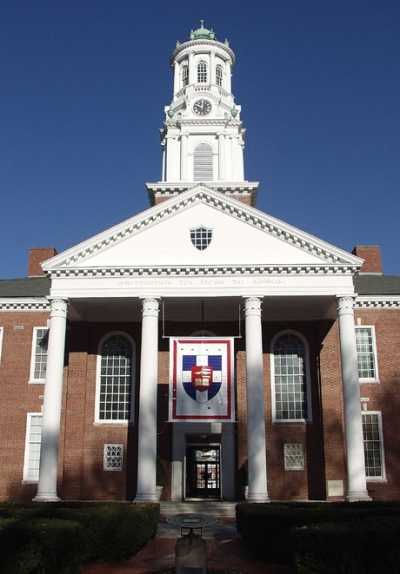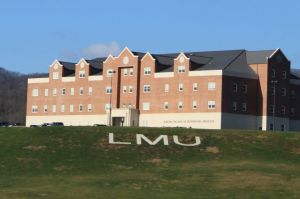SBTS refuses request to pay reparations to black college over ties to slavery

The Southern Baptist Theological Seminary in Louisville, Kentucky, has refused a request to transfer a “meaningful” portion of its financial wealth to a local historically black college as a form of reparation for the institution’s historic ties to slavery and racism.
SBTS President Al Mohler and SBTS Board Chairman Matthew Schmucker sent a letter last week responding to a request from a black-white clergy coalition called EmpowerWest Louisville.
Mohler and Schmucker stated that they do “not believe that financial reparations are the appropriate response” to its historical connections to slavery and segregation outlined in an SBTS report published last year.
They noted that the seminary has been making efforts for decades to welcome and educate black Baptist ministers.
“It is the will of Southern Baptists that these efforts take place within The Southern Baptist Theological Seminary. The Southern Baptist Convention would not allow nor support the transfer of funds to any other institution," the letter, which was obtained by The Christian Post, reads. "We agree with the policy of the Southern Baptist Convention in this regard."
In December, SBTS faculty produced the report commissioned by Mohler which recounted Southern Seminary’s history of slavery and racism. It details things such as the school’s slave-holding founders in the 19th century and also faculty who defended segregation in the early 20th century.
The report was part of an endeavor to recognize their past moral failings on race issues.
“We must repent of our own sins, we cannot repent for the dead. We must, however, offer full lament for a legacy we inherit, and a story that is now ours," Mohler said at the time of the report's release.
EmpowerWest responded to the SBTS report and called on the seminary through a petition of faith leaders to “transfer a meaningful portion of its financial wealth” to Simmons College of Kentucky, a private historically black college.
Such a transfer would serve as "an act of repentance and repair to descendants of American slavery," the petition states.
What is now Simmons College was founded a few months after the end of the civil war in 1865 by the Kentucky State Convention of Colored Baptist Churches as the state’s first post-secondary educational institute for its “colored” citizens.
EmpowerWest suggested that SBTS should transfer with interest a $50,000 donation that saved SBTS from financial collapse in 1880, as reported by Baptist News Global. According to SBTS’ December report, the donation was made by a man named Joseph E. Brown, who “earned much of his fortune by the exploitation of mostly black convict-lease laborers.”
The SBTS report stated that the legal system “entrapped thousands of black men, often on trumped-up charges and without any due process protections and earned money for sheriffs and state treasuries by selling their labor.” The SBTS report called it “worse than slavery.”
The seminary honored Brown, a former SBTS board chairman, at the time of his death.
Although they refused the request for SBTS to pay reparations to Simmons College, Mohler and Schmucker assured that they are open to the possibility of a partnership.
“But such a partnership can come only with institutions that share our theological commitments as made clear in the Baptist Faith & Message (2000) and our other confessional statements,” their letter reads. “We would not partner with an institution that denies or repudiates doctrines essential to biblical Christianity.”
The SBTS leaders stressed that the seminary is "committed to do what is right and honors God in this generation and in generations to come."
"We will not transfer these responsibilities to any other institution," the letter states.
SBTS is not the only higher education institution facing reparations demands related to ties to racism and slavery.
In March, a group of black seminarians started a petition calling on Princeton Theological Seminary in New Jersey to set aside 15 percent of the portion of its endowment used for operating expenses every year to fund tuition grants for black students.
According to The Daily Princetonian, 15 percent would amount to about $5.3 million per year that the seminary would have to set aside based on the seminary’s 2017-2018 operating expenses. Additionally, the Association of Black Seminarians called for the establishment of a PTS black church studies program.
The petition was signed by over 600 people.
The petition was in response to an internal audit of PTS’ historical connection with slavery authorized by president Craig Barnes and the PTS board of trustees.
“The ABS encourages the Board of Trustees and the Administration to follow the instructions of Lev. 26:41 fully, in which the covenant people of God are called to make amends for the iniquity of their ancestors,” the petition reads.
As a number of colleges and universities are facing calls to pay reparations over connections to racism and slavery, Princeton Theological Seminary Associate Professor Keri Day argued earlier this year why white Christians should get behind the idea of reparations and even see it as an act of worship during a lecture at Riverside Church in Manhattan.
She referred to Jesus’ encounter with the Roman tax collector Zacchaeus in Luke 19.
“In his encounter with Zaccheus, I want to suggest that Jesus sets forth a reparations ethic,” she said. “Zaccheus is expected to give back that which he has stolen so that he can be reconciled with others and God. Reconciliation cannot occur until he has given back what he has stolen.”
Earlier this year, Thabiti Anyabwile, a prominent black Southern Baptist pastor in Washington, D.C., weighed in on the matter.
“I’m sad for folks who hear the word ‘reparations,’ w/o any specific proposal attached, who start exclaiming, ‘Blacks just want to steal whites’ money!’ It’s a retort that reveals possible idolization of mammon and willful blindness to 250 years of stealing Black ppl themselves,” Anyabwile argued in a series of tweets.
“And the hypocrisy of some self-professed ‘conservatives’ who argue all day long that a person should be able to control their labor but who do not think any recompense is owed for CENTURIES of stolen labor is mind-blowing. It’s a glaring inconsistency."
Follow Samuel Smith on Twitter: @IamSamSmith
or Facebook: SamuelSmithCP



























